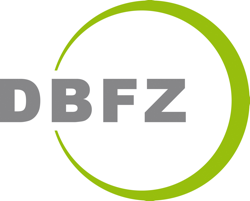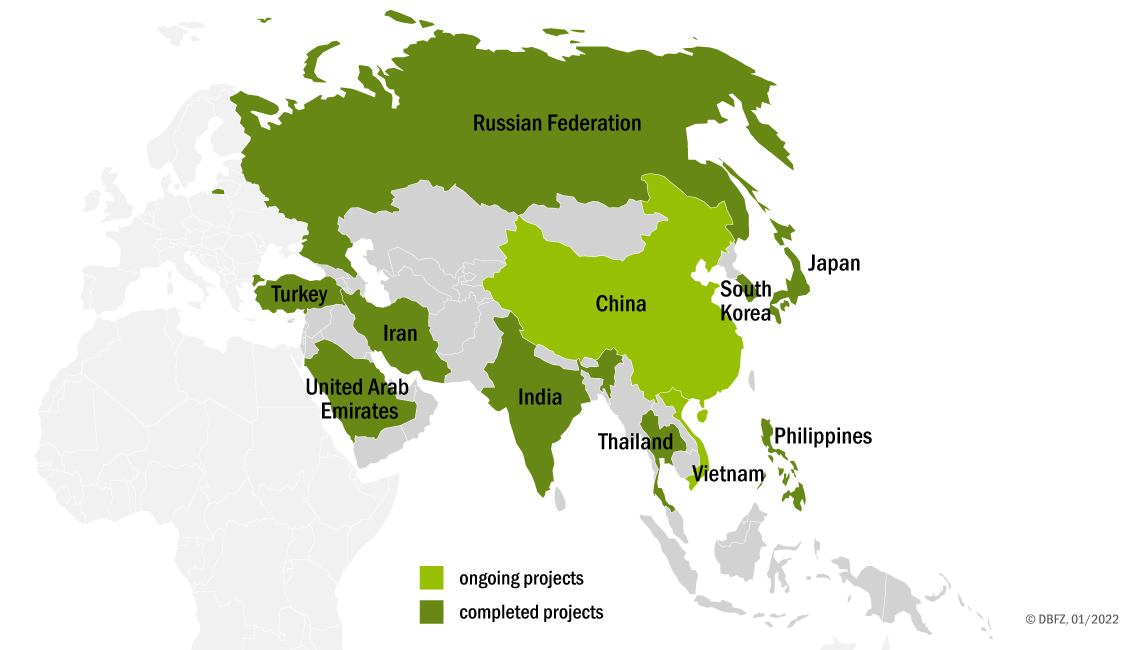Asia
Asia, particularly South and East Asia, has experienced very rapid growth in both economic output and population over the last fifty years. The demand for energy has grown tremendously. Renewable energies are on the rise. In many countries and regions of Asia, however, biomass is still used in the traditional way.
Agricultural residues constitute a huge potential, although with regional differences. Rice husks, rice and wheat straw, manure, vinasse and filter cake, palm oil (processing) residues and pulp, to name a few, are of crucial importance. But there is not always a sustainable way of their further utilization along the value chain. Often they are simply disposed into landfills or openly burnt on the fields. This releases unnecessarily greenhouse gases and squanders the energy content of those residues.
Bioenergy and bioeconomy technologies could offer an environmental-friendly solution for energy supply (especially in rural areas) as well as for the material utilization of the agricultural residues. In the future, a third aspect will gain importance: closing the nutrient loop and the production of bio-fertilizer.
DBFZ has already transferred knowledge to various Asian countries in recent years. This implies, for instance, comprehensive biomass potential analysis with standardized methods, mass flow charts and their contextualization within the specific country context. The outcome gives political and other stakeholders the means to take decisions on bioenergy projects or biomass and bioeconomy strategies in their countries. The same is true for biogas concepts, jointly developed of DBFZ and national partners, as in the case for manure and other residues and for urban bio-waste. Last but not least, a pre-feasibility study in Vietnam revealed the economic potential and environmental benefits of utilizing rice husks to produce high-purity biosilica.
Country experiences
DBFZ’s relation to China, through its scientific staff, dates back before its founding in 2008. For several years DBFZ has been involved in university lectures, studies and projects on bioenergy, mainly biogas and bio-waste. A highlight was the approval of DBFZ’s first participation in a World Bank project in 2015. There was a Sino-German summer school on the energetic and material use of biogenic residues in the same year. In 2017 DBFZ was evaluated by the State Administration of Foreign Experts Affairs (SAFEA) and got, as one of the few international research centers, the certificate which formally allows DBFZ to provide training in China. Further projects on biogas use and manure management, rice husk combustion with bio-silica production and an integrated training program for the University of Hefei followed.
The cooperation with Japan started in 2009. The topic was first a consultancy in the biogas sector. Then, a common field of action became the energetic use of solid biomass, i.e. their pelletization and torrefaction.
In India, DBFZ has worked with partners on the topics of potential analysis, biogas, motor fuels based on algae, and gasification. Another important topic has been the energetic use of biogenic waste and hydrogen out and with biomass.
DBFZ’s activities in Vietnam have focused on biomass potential analyses on the national and regional level as well as giving support for a feasibility study regarding the construction of a biogas plant. An important pre-feasibility study was conducted about the valorization of rice husks, which are produced in large quantities but are handled only as waste.

